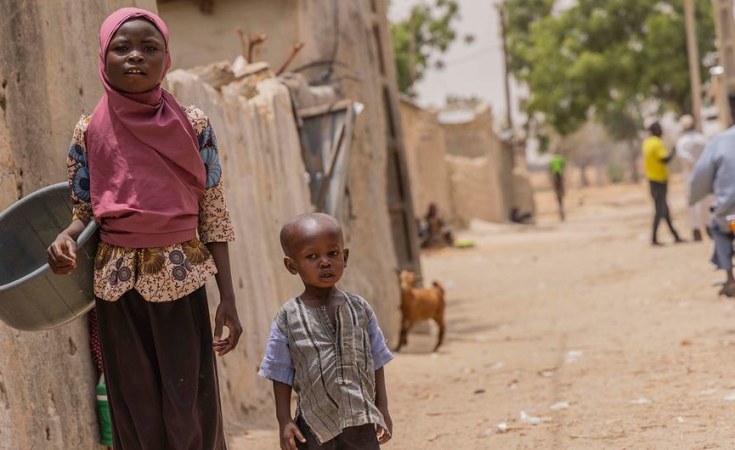The Niger coup - the fifth in the Sahel and sixth in the broader west Africa region in three years - has pushed the region further into political unrest and insecurity.
Several interests converge there at the intersection of international, regional and local security dynamics.
The Sahel stretches from the Atlantic Ocean eastward to Sudan and Eritrea. It cuts through Senegal, Mauritania, Mali, Burkina Faso, Niger, north-eastern Nigeria and Chad.
The complexity of the Sahel means that the Niger coup has major implications for security in the entire region. Based on years of research and analysis, I see four main potential effects of the Niger coup on the Sahel region and west Africa.
These are:
- a threat to cross-border development projects
- a weakening of the regional body, Ecowas
- a shift in power relations and more global confrontations
- derailing cooperative efforts across the Sahel.
None of these would be good outcomes. They would worsen existing humanitarian crises, including food insecurity, environmental disasters, transnational crime, population displacements and widespread poverty.
Cross-border development projects
The Sahel region is home to several critical transnational development projects, many of which involve Niger. Instability poses a threat to their completion.
An example is US$25 billion Nigeria-Morocco Gas Pipeline, one of the most ambitious projects in west Africa. It aims to connect gas producers in Nigeria to various west African countries, ultimately reaching Morocco and Europe.
Another example is the Trans-Saharan Road. This is a major trade route to boost economic activities across six African countries, including Niger.
Nigeria's leadership of the Ecowas intervention agenda in Niger can also threaten joint initiatives and bilateral agreements. For instance, there is an arrangement for Nigeria to export power to other countries, including Niger. In exchange, these countries won't dam the waters that feed major power plants in Nigeria.
Niger is a crucial partner and transit country for the cross-border projects and inter-country agreements. The collapse of trust between countries will severely compromise the future of these projects and agreements. The Niger crisis can delay or derail efforts to enhance regional connectivity and trade.
Regional rifts and a divided Ecowas
Growing mistrust among west African countries would weaken the regional bloc Ecowas, while the possibility of future coups remains. Ecowas has insisted on forcing the junta in Niger to reinstate the ousted President Mohamed Bazoum, including threatening military intervention.
The immediate support offered to the Niger coup leaders by their counterparts in Burkina Faso and Mali points to serious fissures within the bloc.
With these countries' shared opposition to France and its western allies and a growing preference for Russian partnership, Mali, Burkina Faso and Niger are merging into a de facto anti-west francophone faction within Ecowas.
This new alignment could reshape the political dynamics of west Africa, creating rifts within a region that has historically aimed for unity. The strong warning issued by the military juntas in Mali and Burkina Faso to Ecowas not to interfere in Niger is a notable escalation.
Such posturing hints at a willingness to openly confront the regional body, possibly impairing its diplomatic mechanisms. If Ecowas, which has a history of military intervention to enforce democratic norms, decides to act against the interests of this emerging bloc, the military showdown that becomes conceivable would severely compromise regional unity.
A weakened and divided Ecowas could undo regional economic agendas like the West African Economic and Monetary Union. The coup and regional confrontation would hinder collaboration and threaten ongoing and future joint initiatives.
Shifting alliances
The dominance of foreign and international actors is one reason for the proliferation of security interests in the Sahel. The Niger coup is threatening to shift alliances. This could trigger security priorities and responsibilities being outsourced even more than they are now.
Several western countries - the US, France and their EU partners - have scaled back their support for Niger, Mali and Burkina Faso in response to coups. This leaves a gap in the region's security architecture.
In the vacuum, Sahel governments have sought alternative partners. Russia, through the Wagner Group, has emerged as a player.
The Wagner Group raises concerns due to its history of alleged human rights abuses and mercenary behaviour in other conflict zones. Its increasing influence in the Sahel could have severe implications for human security.
For western actors, Niger assumes great importance for two reasons. The first is that it's seen as a bulwark against jihadism and a bastion of democracy. This explains the presence of western troops and facilities in the country. The second is that it is the world's seventh-largest producer of uranium and the second-largest supplier of uranium to France.
Niger is therefore a country that western countries cannot afford to lose because of who will win: Russia. The Sahel will be a turf for more global superpower confrontations.
Chaos and counter-coups
Niger shares its borders with seven nations and is a critical player in regional security initiatives. The coup could hurt cooperative efforts across the Sahel to respond to extremist groups and terrorism.
Each coup creates a new vacuum and adds new layers to the environment of distrust. The addition of Russia would add complexity and another actor into a "security traffic jam" - where the presence of several actors but with little coordination has created a congested and chaotic security landscape.
The danger is that security forces are spread thinner, allowing extremist groups to expand their territories and influence. Niger has experienced its first post-coup jihadist attack - the first in one and a half years.
The coup culture in francophone countries also risks causing further instability. Military juntas in Mali, Burkina Faso and Niger do not have the support of all their militaries. This creates an environment for additional coups and counter-coups.
Muhammad Dan Suleiman, Research associate, Curtin University


